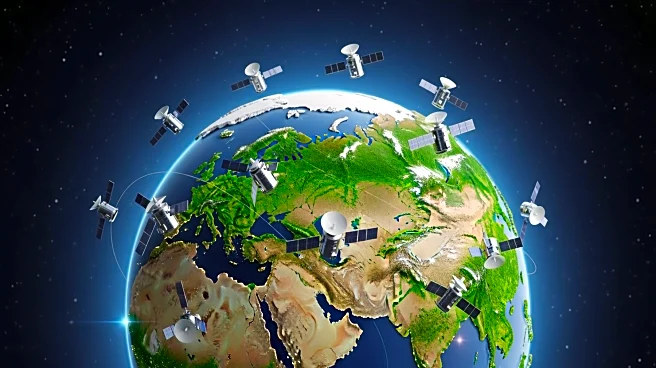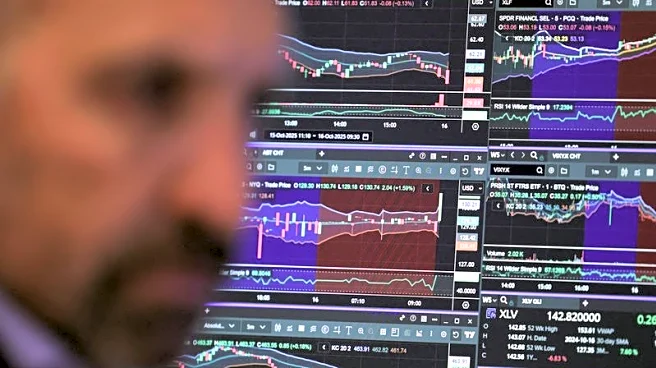What's Happening?
EU government ministers have agreed on a reduced 2040 emissions reduction target of 85%, with up to 5% of reductions achievable through international carbon credits. This decision has raised concerns about Europe's climate leadership and the effectiveness
of its climate policies. The delay in implementing the EU's carbon price on road and heating fossil fuels (ETS2) by a year further complicates efforts to transition to green technologies. Critics argue that these measures undermine the clear direction needed for businesses and consumers to invest in sustainable practices.
Why It's Important?
The weakened emissions target and delayed ETS2 implementation could slow down Europe's progress towards achieving climate goals and transitioning to a sustainable economy. Businesses and consumers may face uncertainty, affecting investments in green technologies. The reliance on international carbon credits may not provide the necessary incentives for domestic emissions reductions. These developments highlight the challenges in balancing economic interests with environmental commitments.
What's Next?
The European Parliament will need to negotiate with the Council to finalize the emissions target. Lawmakers may push for stricter criteria for international carbon credits and advocate for maintaining ambitious car CO2 standards. The outcome of these negotiations will determine the EU's climate policy direction and its ability to meet long-term environmental goals.
Beyond the Headlines
The decision to weaken the emissions target reflects broader tensions between economic and environmental priorities within the EU. As climate change impacts become more pronounced, the need for decisive action and clear policy signals to businesses and consumers will be critical in shaping Europe's future economic and environmental landscape.
















